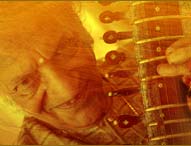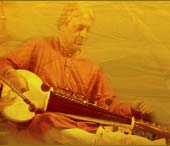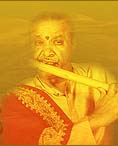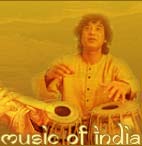Born On: April 7, 1920
Born In: Varanasi
Career: Composer, Sitar player
Nationality: Indian
Ravi Shankar is a sitar player, who has not only spellbound people in India, but mesmerized people all across the globe with his fabulous musical performances. He was instrumental in taking Indian classical music to the western world. He is a performer, composer, teacher, and writer, but is best known as an instrumentalist. A true multifaceted personality, Shankar is, today, India's one of the most esteemed and celebrated musical ambassador and a major connect between the music worlds of the East and the West. With India's highest civilian award, the Bharat Ratna, and three Grammy Awards to his honor, Pandit Ravi Shankar has dedicated his entire life to music, with over six decades and got himself recorded in the Guinness Book of World Records for the longest international career.
Early life
Ravi Shankar was born as Robindro Shaunkor Chowdhury to Shyam Shankar and Hemangini Devi. He was the youngest of the seven brothers and belonged to a Brahmin family from Varanasi. For the first eight years of his life, Shankar did not meet his father, as he moved to London to work as a lawyer and married for the second time. His elder brother Uday Shankar was an eminent Indian classical dancer. When Shankar was 10, he went to Paris along with Uday. By 13, he was already a member of the dance troupe and had been touring extensively, along with learning dance and playing musical instruments.
Career
Pandit Ravi Shankar took his formal training in music under the guidance of Ustad Allauddin Khan of Maihar between 1938 and 1944. He composed two concertos for orchestra and Sitar. He started working as a music director for All India Radio (AIR) at New Delhi and recording music for HMV from 1949 to 1956. On hearing about the positive response that his brother-in-law Akbar Ali Khan received while performing on western grounds, he resigned from AIR in 1956 to concentrate on foreign tours. Beginning with small audiences and incorporating South Indian Carnatic music in his performances, Shankar toured the United Kingdom, Germany, and the United States. In 1958, he was one amongst the musicians who participated in the 10th anniversary celebrations of the United Nations and UNESCO music festival at Paris. In 1962, he established the Kinnara School of Music in Mumbai and later opened a western branch in Los Angeles, California in 1967. He was honored with the Grammy Award for best Chamber Music Performance at the Monterey Pop Festival in 1967.
The charity concert for Bangladesh, in which Shankar participated in August 1971, became one of the best-selling concert albums. As such, Shankar was conferred upon with a second Grammy Award. The success of the Europe tour gave way for North America tour, during which Shankar suffered a heart attack in Chicago in 1974 and the remaining portion of the tour stood cancelled. In 1976, he founded the Research Institute for Music and Performing Arts in Varanasi. His remarkable works have earned him lot of praise and appreciation. From 1986 to 1992, Shankar served as a Rajya Sabha member in the Parliament of India, after being nominated by the then Indian Prime Minister, Rajiv Gandhi. He composed music for films like as 'Dharti ke Lal', and 'Neecha Nagar'. He also composed the music for the popular patriotic song 'Sare Jahan Se Accha' which is, till date, the most famous version. Although he performed in many international destinations, yet he never left his connection with India and keeps traveling back and forth from west to east.
Contribution to Music
Unlike the music influences and rhythm practices from the traditional Carnatic music, Ravi Shankar developed a distinct style of music. He gained name by performing on the bass octave of the sitar for the alap section, while using quick and short deviations for the middle and high notes. This came to be known as a distinctive style of playing the strings of the sitar. He helped greatly in promoting the jugalbandi duet concert style and introduced new ragas, like Tilak Shyam, Nat Bhairav, and Bairagi.
Personal Life
In 1941, 21-year old Ravi Shankar was married to the 14-year Annapurna Devi, daughter of his own teacher Baba Allauddin Khan. The couple was blessed with a son, Shubhendra Shankar in 1942. However, the marriage did not last long and the couple separated in 1940s. This was followed by a relationship with Kamala Shastri, a dancer, in the late 1940s. On his tour to America, Shankar had an intimate affair with Sue Jones, a New York concert producer, which led to the birth of this offspring, Norah Jones in 1979. Besides, Shankar was also in a relationship with Sukanya Rajan during 1970s, wherein the couple gave birth to Anoushka Shankar in 1981. Until 1981, he lived with Kamala Shastri, but separated with her to live in with Sue Jones. However, the relationship lasted until 1986, after which he married Sukanya Rajan in 1986. Both his daughters, Norah Jones and Anoushka Shankar are renowned musicians in their respective fields.
Awards & Recognition
Silver Bear Extraordinary Prize of the Jury, Berlin International Film Festival, 1957
Sangeet Natak Akademi Award, 1962
Grammy Award for Best Chamber Music Performance, 1967
Padma Bhushan Award, 1967
Music award of the UNESCO International Music Council, 1975
Padma Vibhushan Award, 1981
Kalidas Samman from the Government of Madhya Pradesh, 1987-88
Fukuoka Asian Culture Prize, 1991
Ramon Magsaysay Award, 1992
Praemium Imperiale for Music from the Japan Art Association, 1997
Polar Music Prize, 1998
Bharat Ratna Award, 1999
Grammy Award for Best World Music Album, 2000
Timeline
1920: Born on April 7 in Varanasi, United Provinces, Indian Empire
1941: First marriage with Annapurna Devi
1949: Became music director at All India Radio (AIR)
1962: Established the Kinnara School of Music in Mumbai
1967: Won the first Grammy Award for Best Chamber Music Performance
1967: Honored with Padma Bhushan Award
1981: Bestowed with Padma Vibhusan Award
1989: Second marriage with Sukanya Rajan
1999: Won the Bharat Ratna Award.






